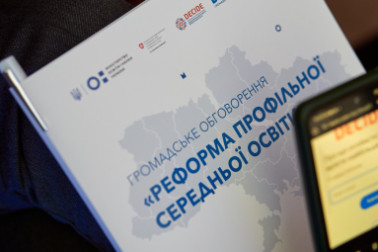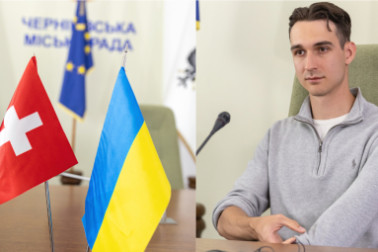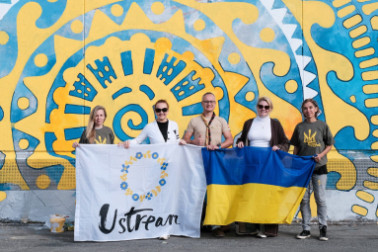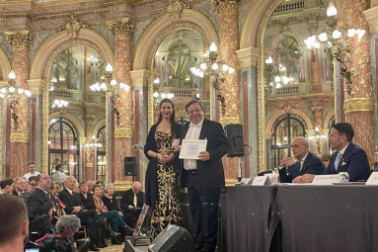Education and Early Achievements
Pylyp was highly educated and proficient in eight European languages and Ancient Greek and Latin. He graduated from the Kyiv-Mohyla Academy and excelled in all aspects of his studies. It's no wonder he quickly rose through the ranks after completing studies at the best educational institution in Ukrainian territories. Young Orlyk was initially invited to the General Military Chancellery in Baturyn, where the residence of the Hetman of Ukraine, Ivan Mazepa, was located at that time. Soon, he became the General Scribe of the Zaporozhian Host and quickly became a trusted individual of the Hetman.
Ivan Mazepa was a talented politician and a true statesman who nurtured the idea of Ukraine's independence from Muscovy. He shared his plans with the young scribe. He wanted to oppose Peter I and join the Swedes in their campaign against Russia, hoping to gain freedom for subjugated Ukraine. Pylyp was the one who conducted official correspondence with Charles XII, the King of Sweden. His diplomatic talents significantly aided Mazepa in establishing a connection with the Swedish king.
Ivan Mazepa's dream of Ukraine's independence from Russia resonated deeply with Pylyp, and he remained loyal to the Hetman until his last day in office.
 Pylyp Orlyk by Artur Orlyonov
Pylyp Orlyk by Artur Orlyonov
Exile and Attempts to Return to Ukraine
After the defeat of the Swedish-Ukrainian forces in the Battle of Poltava, Orlyk, along with the Hetman, the Cossack leadership, and thousands of Cossacks, retreated to Bender, within the territory of the Ottoman Empire. This was nearly the first political emigration of Ukrainians.
In the spring of 1710, Hetman Mazepa passed away, and the Zaporozhian Host faced the question of who could succeed him. Of course, this was about the Hetmanate outside Ukraine, as returning to their homeland was impossible. Having strengthened itself after defeating Sweden, Russia appointed a new Hetman, and Ivan Mazepa was excommunicated from the church and cursed. Therefore, at a joint council of the Cossack leadership and representatives of the Ottoman Sultan and the Swedish King Charles XII, Pylyp Orlyk was elected as the Hetman (in exile).
Orlyk's Constitution, or "Pacts and Constitutions of Rights and Freedoms of the Zaporizhian Host"
The document later known as "Orlyk's Constitution" had the original title "Pacts and Constitutions of Rights and Freedoms of the Zaporizhian Host." For a while, it was also referred to as the "Bender Pacts" because they were signed in the city of Bender.
The Pacts were created to implement the building blocks of an independent Ukraine after liberation from Russia. The uniqueness of Pylyp Orlyk's Constitution lies in its establishment of dividing state power into three branches: legislative, executive, and judicial. Additionally, the principle of delegation of powers was introduced. These were highly progressive ideas for the early 18th century.
The General Council represented the legislative power, essentially a parliament, which was supposed to convene three times a year.
The executive power was shared between the Hetman and the General Council.
The highest judicial authority was the General Court.
 Pages from the "Pacts and Constitutions of Rights and Freedoms of the Zaporozhian Host," 1710. National Archives of the Kingdom of Sweden, Stockholm. Photo: mind.ua
Pages from the "Pacts and Constitutions of Rights and Freedoms of the Zaporozhian Host," 1710. National Archives of the Kingdom of Sweden, Stockholm. Photo: mind.ua
The document also contained paragraphs that established the election of various state positions and norms aimed at limiting the rights, thus serving as a preventive measure against abuses by officials. Specific norms were outlined to protect the rights of Cossack widows and women during their husbands' campaigns. In essence, elements of social policy were incorporated into the state affairs. The Pacts comprised 16 paragraphs, covering a broad range of state issues.
Unfortunately, this document never became the foundation for the legislative framework of independent Ukraine during that time. The Hetman and the political elite in exile could not secure freedom for Ukraine despite their attempts.
The original first page of the Constitution and its 18th-century Latin copy are preserved in the National Archives of Sweden. The last page of the Ukrainian-language document with Pylyp Orlyk's signature and the seal of the Zaporozhian Host is in the Russian State Archive of Ancient Acts.
.jpg) Monument in Kristianstad, Sweden, unveiled on the 300th anniversary of Pylyp Orlyk's Constitution.
Monument in Kristianstad, Sweden, unveiled on the 300th anniversary of Pylyp Orlyk's Constitution.
Attempts to Return to Ukraine
Pylyp Orlyk hoped to defend Ukraine's independence and, thus, assembled a 16,000-strong army consisting of Zaporozhian Cossacks, Budjak Tatars, Swedes, and Poles under the command of Józef Potocki. In 1711, he launched a liberation campaign on the Right-Bank Ukraine. After several victorious battles, Orlyk's forces reached Bila Tserkva and besieged the town. However, the Tatars, a significant force, decided to return home, plundering Ukrainian settlements along their way and taking people captive. The Right-Bank Cossacks, who had joined Orlyk during his campaign, rushed to save their families and seek revenge on former allies who had betrayed them. Orlyk remained with a 3,000-strong force, lost the trust and support of the Right-Bank Ukrainians, and was forced to retreat to Bender. He couldn't rebuild his army's strength, and further liberation campaigns were no longer possible.
Life in Exile
The Hetman lived in exile for 30 years, consistently seeking support from the heads of European states and trying to form an anti-Muscovite coalition. During the war between the Ottoman Empire and Russia in 1740, Orlyk intensified his diplomatic efforts to secure support from France, Great Britain, the Polish-Lithuanian Commonwealth, the Vatican, Saxony, and Prussia. He wrote letters to state leaders, describing the fate of Ukrainians under Moscow's yoke, and asked for help in the fight for freedom. Unfortunately, this yielded no results.
Pylyp Stepanovych Orlyk died on May 24, 1742, in Iași, Moldova. In addition to the Constitution, the Hetman left behind several collections of poems and a "Traveler's Diary," which he maintained from 1720 to 1733. His son, Hryhor Orlyk, continued his father's mission, attempting to inspire the global community with the idea of Ukrainian independence, yet without success.
Significant support from most of the world's nations was only achieved now during Russia's full-scale war against independent Ukraine. We sincerely believe that this time, the dream of Pylyp Orlyk, Ivan Mazepa, thousands of other statesmen, and millions of Ukrainians will finally be realized. Ukraine will establish itself as a powerful, independent European state and embark on a path of development and prosperity.







